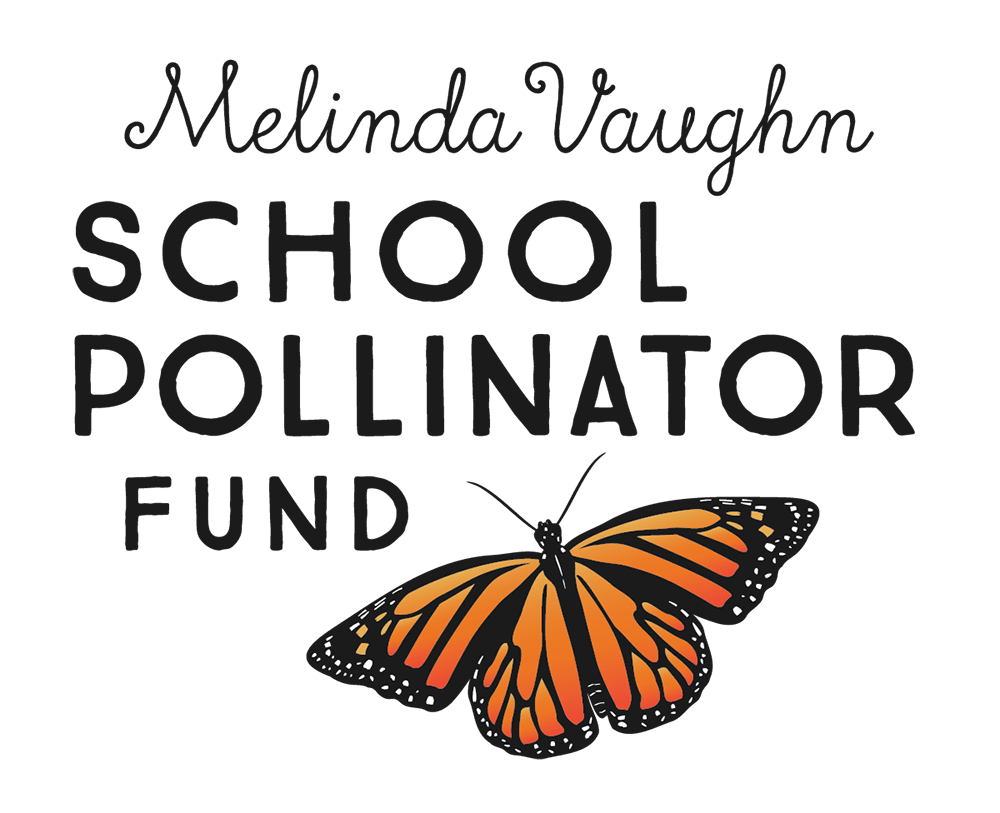
FAQ
A Quick Guide for Applicants, Partners, & Volunteers
Photo © Dawn Parendo
Our Program Brings Pollinator Gardens & Resources to Minnesota K-12 Schools
Applicants / Partners / Volunteers
Find helpful information here for teachers and administrators who want to apply to bring the program to a school. Learn more about volunteer and partnership opportunities for community members and organizations. Become part of a community that helps bring pollinator education to Minnesota schools.
For Applicants
What initial steps should I take before applying?
Please consult your district’s policies for gardens on school property and make sure you have the school’s approval before applying. Form a team of people who may be involved in the planning, installation, and maintenance of the garden. Beyond involvement of a teacher or teaching team, the school principal or administration, and the head building engineer, other team members might include parents.
How do I prioritize the best ways to help pollinators at my location?
To help you evaluate your site, consult the Xerces Society’s Habitat Assessment Guide.
What else should I be considering for my school garden project?
Determine the amount of sun available to the site on a summer day – full sun, partially shaded, or full shade – as well as how you will get water to your site, and how students will get to the site. Also think about how students will benefit from the garden, how you expect to enhance student learning, and how you will measure the project’s success – for example, number of students utilizing the garden.
Where can I find best practices for school pollinator garden programs?
See the National Wildlife Federation’s Schoolyard Habitats Planning Guide or the Monarch Joint Venture’s Schoolyard Butterfly Gardens guide.
Will organizations and community members help with my school pollinator garden project?
In our initial meeting with schools selected for our program, we will identify areas where outside assistance and expertise will be needed, and we will develop a work plan.
For Partners
What kinds of partnership opportunities exist with the School Pollinator Fund?
For businesses aligned with our mission, we offer corporate sponsorships and cause marketing partnerships. For nonprofit partner organizations focused on pollinators and/or the environment, we offer opportunities for co-sponsored and co-hosted events, shared booth space at community events, and program collaboration.
Are you open to other kinds of partnerships?
Yes, we welcome your ideas about other ways to collaborate. Please contact us with proposals.
Will any size business be considered for a partnership?
Yes, we will work with a variety of businesses, including solo entrepreneurs, who are aligned with our mission.
For Volunteers
What kinds of volunteers are you seeking?
We’d love to hear from you about how your skills and talents could be put to work! Volunteer roles we’ve identified include: school garden maintenance, education and outreach, design, email marketing, social media promotion and management, event planning, grant writing, donor communications, fundraising phone calls and outreach, and volunteer recruitment.
How do I become a volunteer?
Contact us with the subject line “Volunteering” and we’ll send you an application to fill out. We’ll then set up an orientation meeting with you to learn more about your interests and availability and answer any questions you may have.
How can I best represent the organization as a volunteer?
Take some time to get acquainted with our website so you have the information you need to be successful in your role. Feel free to reach out with questions anytime something is unclear.
How can I get the most out of my volunteer experience?
Identify your goals, be flexible, ask questions, be honest about your skills and experience, and keep track of what you learn. Continue learning about pollinators and pollinator conservation with free webinars from organizations such as the Xerces Society for Invertebrate Conservation and the University of Minnesota Bee Lab.
